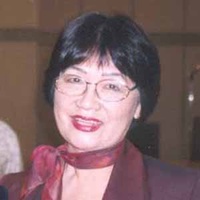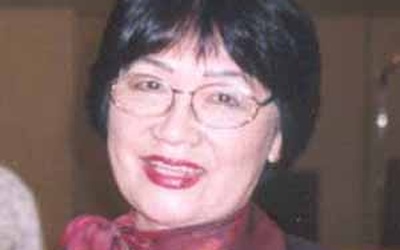Is it an advantage or not to be Nikkei?

Emi Kamatsu makes a historical development of Paraguay from the first immigrants to the present. It investigates the barriers of the countries receiving Japanese immigration: economic, political, cultural. The organizational, moral and ethical heritage of the Meiji era, the post-war expulsion of the kimines , their great contribution to cooperative and associative development despite segregation. Finally, generational and contextual change.
Stories from this series
Discriminación y exclusión social y acceso a la política de los Nikkei en las Americas*
June 19, 2007 • Emi Kasamatsu
Según la Ley de Inmigración del año 1903, en su Articulo XIV prohibía la entrada de inmigrantes negros y amarillos en el Paraguay. En esta misma situación estuvieron los países como Guatemala, Venezuela y Uruguay. A este respecto el historiador paraguayo Carlos A. Pastore dijo: “Mientras que otros países abrieron sus puertas a nuevas inmigraciones, Paraguay cierra su puerta al desarrollo. Según los estudiosos de inmigraciones de raza amarilla, esta postura anti-asiática tuvo que ver en el conflicto americano que …
Características peculiares de los Nikkei del Paraguay. Estudio comparativo con los Nikkei de las Américas
June 6, 2007 • Emi Kasamatsu
El inicio del nuevo milenio que por cierto ya pasaron siete años, parecería que las cosas iban a cambiar. Sin embargo, el mundo sigue convulsionado y se acentúa cada vez más la corrupción, recrudece la crisis económica, crece la violencia y la pobreza alcanza sus niveles más altos en la región en un 60%. Esta maraña de complejidades ocurre en la mayoría en los países de América Latina y en forma particular el Paraguay. Sin embargo, es interesante notar que …
La identidad Nikkei y la conexión entre los jóvenes Nikkei de las Américas
May 22, 2007 • Emi Kasamatsu
Indudablemente la identidad entre los japoneses y los Nikkei nacido en nuestro continente difiere sustancialmente. Los primeros mantienen en lo posible su identidad japonesa y procurando no deteriorar esa forma cultural de vida. Mientras que los nisei y sansei trata de interaccionar con la sociedad mayoritaria comenzando en los colegios, universidades y luego en el ámbito laboral y social. Los Nisei llevan en sí dos mundos, dos identidades, una japonesa y la otra mitad el país donde nació y vive. …
El problema generacional entre los Nikkei del Paraguay
May 9, 2007 • Emi Kasamatsu
Los japoneses que llegaron al Paraguay desde el año 1936 - 1941, es decir durante la época anterior a la Segunda Guerra Mundial, prácticamente quedan sólo los que vinieron jóvenes y niños en La Colmena. Sin embargo, la influencia ejercida por estos primeros inmigrantes hacia sus descendientes era y sigue siendo significativa y, que todavía sigue vigente ese eslabón ya desaparecido del alma japonés de la época posterior a Meiji, permanece entre los japoneses y Nisei de La Colmena, caracterizado …
El idioma japonés como fundamento de la identidad y la preservación de la tradiciones y cultura
April 24, 2007 • Emi Kasamatsu
A través de la observación minuciosa, es importante cerciorar que los Nikkei del Paraguay junto con los de Santa Cruz de la Sierra y San Juan de Bolivia son los que quizás hablen mejor y en número el idioma japonés en el continente americano. El conocimiento del idioma hace que conserve el estilo de vida y costumbres y hasta en los caracteres y la filosofía de vida de sus ancestros. Para muchos Nisei, el idioma japonés es el lenguaje del …
La importancia de la asociatividad entre los japoneses, formación de asociaciones, federaciones y entidades de beneficencia y deportivas
April 10, 2007 • Emi Kasamatsu
Se dice que tres japoneses se reúnen y se forma una asociación. Tal es la necesidad de agruparse para la realización de un objetivo común en la búsqueda de beneficios que redunde al grupo y su posterior trascendencia hacia una comunidad. Esta forma asociativa esta inserto profundamente en el alma de los japoneses con el lema “dos cabezas valen más que una” y el valor de trabajar en equipo y lograr el equilibrio entre todos. Se puede comparar el trabajo …



